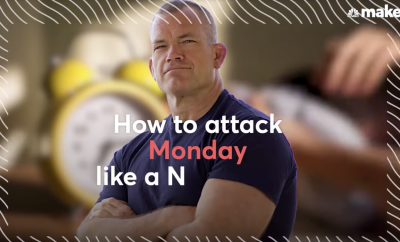 Pexels
Pexels
6 Strategies To Stop Emotional Eating
6 Strategies To Stop Emotional Eating
Are you hungry? No, are you really “hungry”?. Or are you just eating because you’re bored, stressed, or unhappy?
If you find yourself eating when you’re not physically hungry, then you may be an emotional eater. Emotional eating is a common problem that can sabotage your weight loss efforts and lead to unhealthy habits.
But don’t worry, it’s very common. “So common even our own cats and dogs also fall for this coping mechanism”, stresses a pet portrait photographer from Melbourne. However, it’s okay, there are ways to stop emotional eating. These are the 6 strategies to stop emotional eating
1. Recognise your triggers
The first step to stopping emotional eating is to identify your triggers. What situations or emotions lead you to overeat? Do you tend to eat when you’re bored, stressed, or lonely?
Once you know your triggers, you can begin to address them. For example, if you eat when you’re bored, try to find other activities to keep yourself occupied. If you eat when you’re stressed, try to find healthy ways to cope with stress.
2. Change your relationship with food
One of the reasons people emotionally eat is because they view food as a comfort. Early learning experts from Sydney use the example that “from a young age, we’re taught that food can be a source of comfort. When we’re sad, our parents give us ice cream or cookies”.

Photo by Pavel Danilyuk
If this sounds like you, it’s time to change your relationship with food. Start thinking of food as nourishment for your body, not as a crutch for your emotions. When you view food in this way, you’ll be less likely to turn to it when you’re feeling down.
3. Practice mindful eating
Mindful eating is a technique that can help you break the cycle of emotional eating. “It involves being present and aware of your thoughts, feelings, and sensations while you eat”, points out a weight loss hypnotherapist from Adelaide.
This may sound easy, but it’s actually quite difficult. Most of us are so used to multitasking while we eat that we don’t even realise how often we’re not really present.
To practice mindful eating, start by focusing on your food. Notice the colours, textures, and smells of your food. Pay attention to the way it tastes as you chew and swallow. And finally, notice how you feel after you finish eating.
4. Eat regular meals
One of the reasons people emotionally eat is because they’re trying to compensate for skipped meals. If you’re skipping meals or not eating enough during the day, you’re likely to be Hangry (angry + hungry). And when you’re Hangry, you’re more likely to make poor food choices and overeat.
To avoid this, make sure you’re eating regular meals throughout the day. This will help keep your blood sugar levels stable and prevent you from getting too Hungry.
5. Drink plenty of water
When you’re feeling hungry, it’s easy to mistake thirst for hunger. So before you reach for a snack, make sure you drink a glass of water first.
If you’re still hungry after drinking water, then you can have a healthy snack. But if you’re not really Hungry, then drinking water will help curb your cravings and prevent you from overeating.
 Photo by Andrea Piacquadio
Photo by Andrea Piacquadio
6. Get enough sleep
Sleep plays a vital role in regulating your appetite. When you’re tired, your body produces more of the hormone ghrelin, which increases hunger. So if you’re not getting enough sleep, you’re more likely to experience food cravings and overeat.
To avoid this, make sure you’re getting 7-8 hours of sleep each night. This will help keep your hormones balanced and prevent you from feeling too hungry during the day.
Emotional eating is a common problem, but it’s one that you can overcome. By recognising your triggers and changing your relationship with food, you can break the cycle of emotional eating and finally reach your weight loss goals. Try these 6 strategies to stop emotional eating and start reaching your goals today.













